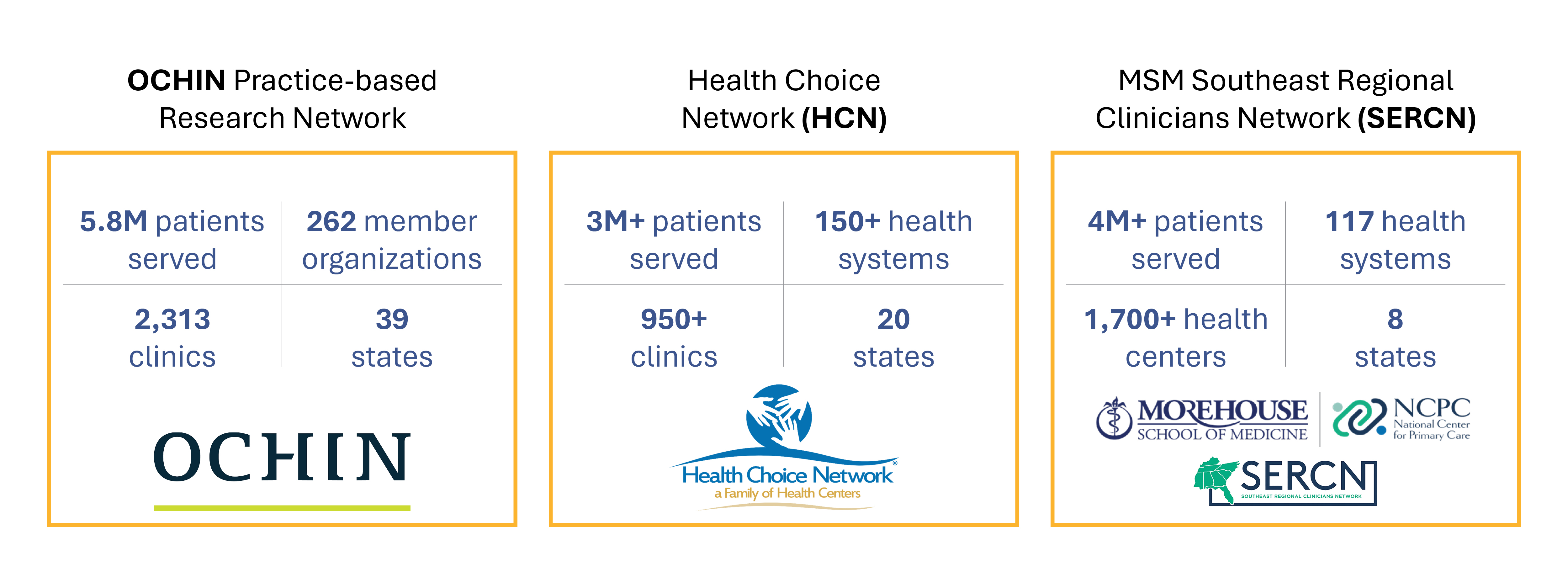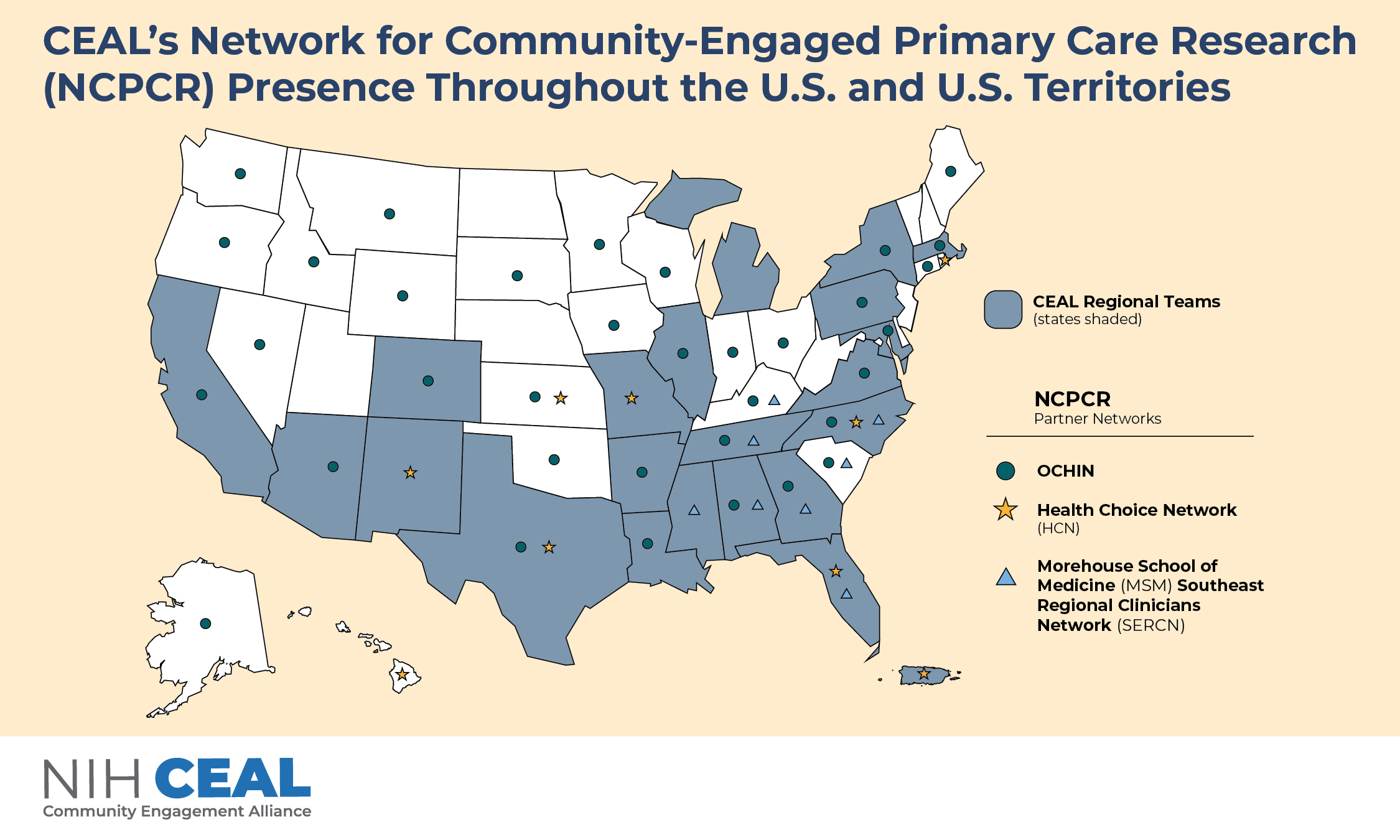The Network for Community-Engaged Primary Care Research
The Network for Community-Engaged Primary Care Research (NCPCR) aligns with the mission of the National Institute of Health’s Community Engagement Alliance (CEAL) program by using community-engaged research in primary care settings. NCPCR teams design and test interventions to address differences in health outcomes and improve participation in research.
NCPCR Components
The NCPCR program has two main components:
- A data ecosystem that uses data warehouse capabilities and electronic health record data elements to centralize data for randomized controlled trials in CEAL communities, and
- A clinical trial conducted in the primary care setting. This component will show how the data ecosystem can support participation in clinical research and improve health care for communities with health challenges.
The data ecosystem will include information from community health centers (CHCs), which are geographically located in CEAL communities and provide primary care to patients often left out of clinical research opportunities.
The clinical trial will work with community health workers (CHWs) from CHCs to identify patients with uncontrolled diabetes mellitus or hypertension who have challenges coping with chronic disease. These challenges, often called social needs, may include accessing regular health care, healthy food, reliable transportation, or a reliable source of income. CHWs support patients by referring them to local social service organizations.
View recordings of NCPCR's Learning Series webinars on YouTube.
Educational materials such as fact sheets and brochures are available here.
NCPCR Data Ecosystem & Clinical Trial Partners as of September 2025



